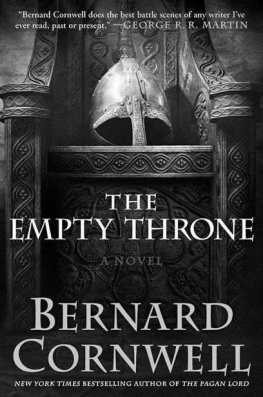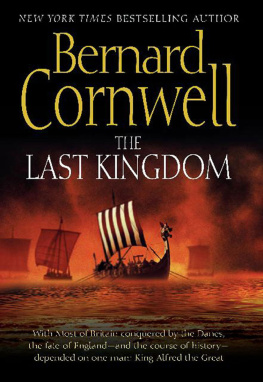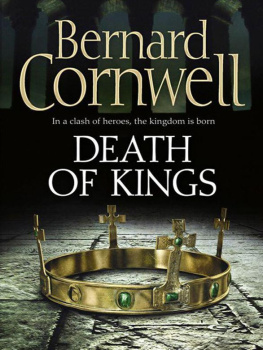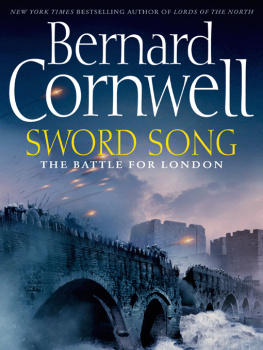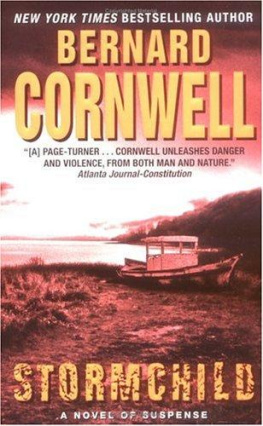Bernard Cornwell - Grail Quest Series 3 Heretic
Here you can read online Bernard Cornwell - Grail Quest Series 3 Heretic full text of the book (entire story) in english for free. Download pdf and epub, get meaning, cover and reviews about this ebook. year: 2003, publisher: HarperCollins Publishers, genre: Adventure. Description of the work, (preface) as well as reviews are available. Best literature library LitArk.com created for fans of good reading and offers a wide selection of genres:
Romance novel
Science fiction
Adventure
Detective
Science
History
Home and family
Prose
Art
Politics
Computer
Non-fiction
Religion
Business
Children
Humor
Choose a favorite category and find really read worthwhile books. Enjoy immersion in the world of imagination, feel the emotions of the characters or learn something new for yourself, make an fascinating discovery.
- Book:Grail Quest Series 3 Heretic
- Author:
- Publisher:HarperCollins Publishers
- Genre:
- Year:2003
- Rating:3 / 5
- Favourites:Add to favourites
- Your mark:
- 60
- 1
- 2
- 3
- 4
- 5
Grail Quest Series 3 Heretic: summary, description and annotation
We offer to read an annotation, description, summary or preface (depends on what the author of the book "Grail Quest Series 3 Heretic" wrote himself). If you haven't found the necessary information about the book — write in the comments, we will try to find it.
Grail Quest Series 3 Heretic — read online for free the complete book (whole text) full work
Below is the text of the book, divided by pages. System saving the place of the last page read, allows you to conveniently read the book "Grail Quest Series 3 Heretic" online for free, without having to search again every time where you left off. Put a bookmark, and you can go to the page where you finished reading at any time.
Font size:
Interval:
Bookmark:
Calais, 1347
The road came from the southern hills and crossed the marshes by the sea. It was a bad road. A summer's persistent rain had left it a strip of glutinous mud that baked hard when the sun came out, but it was the only road that led from the heights of Sangatte to the harbours of Calais and Gravelines. At Nifulay, a hamlet of no distinction whatever, it crossed the River Ham on a stone bridge. The Ham was scarcely worth the title of river. It was a slow stream that oozed through fever-ridden marshlands until it vanished among the coastal mudflats. It was so short that a man could wade from its source to the sea in little more than an hour, and it was so shallow that a man could cross it at low tide without getting his waist wet. It drained the swamps where reeds grew thick and herons hunted frogs among the marsh grass, and it was fed by a maze of smaller streams where the villagers from Nifulay and Hammes and Guimes set their wicker eel traps.
Nifulay and its stone bridge might have expected to slumber through history, except that the town of Calais lay just two miles to the north and, in the summer of 1347, an army of thirty thousand Englishmen was laying siege to the port and their encampment lay thick between the town's formidable walls and the
marshes. The road which came from the heights and crossed the Ham at Nifulay was the only route a French relief force might use and in the height of the summer, when the inhabitants of Calais were close to starvation, Philip of Valois, King of France, brought his army to Sangatte.
Twenty thousand Frenchmen lined the heights, their banners thick in the wind blowing from the sea. The oriflamme was there, the sacred war pennant of France. It was a long flag with three pointed tails, a blood-red ripple of precious silk, and if the flag looked bright that was because it was new. The old oriflamme was in England, a trophy taken on the wide green hill between Wadicourt and Crecy the previous summer. But the new flag was as sacred as the old, and about it flew the standards of France's great lords: the banners of Bourbon, of Montmorency and of the Count of Armagnac. Lesser flags were visible among the noble standards, but all proclaimed that the greatest warriors of Philip's kingdom were come to give battle to the English. Yet between them and the enemy were the River Ham and the bridge at Nifulay that was defended by a stone tower around which the English had dug trenches. These they had filled with archers and men at-arms. Beyond that force was the river, then the marshes, and on the higher ground close to Calais's high wall and its double moat was a makeshift town of houses and tents where the English army lived. And such an army as had never been seen in France. The besiegers" encampment was bigger than Calais itself. As far as the eye could see were streets lined with canvas, with timber houses, with paddocks for horses, and between them were men at-arms and archers. The oriflamme might as well have stayed unfurled.
We can take the tower, sire." Sir Geoffrey de Charny, as hard a soldier as any in Philip's army, gestured down the hill to where the English garrison of Nifulay was isolated on the French side of the river.
To what end?" Philip asked. He was a weak man, hesitant in battle, but his question was pertinent. If the tower did fall and the bridge of Nifulay was thus delivered into his hands, what would it serve? The bridge merely led to an even greater English army, which was already arraying itself on the firm ground at the edge of its encampment.
The citizens of Calais, starved and despairing, had seen the French banners on the southern crest and they had responded by hanging their own flags from their ramparts. They displayed images of the Virgin, pictures of Saint Denis of France and, high on the citadel, the blue and yellow royal standard to tell Philip that his subjects still lived, still fought. Yet the brave display could not hide that they had been besieged for eleven months. They needed help. Take the tower, sire/ Sir Geoffrey urged, and then attack across the bridge! Good Christ, if the Goddamns see us win one victory they might lose heart!" A growl of agreement came from the assembled lords. The King was less optimistic. It was true that Calais's garrison still held out, and that the English had hardly damaged its walls, let alone found a way to cross the twin moats, but nor had the French been able to carry any supplies to the beleaguered town. The people there did not need encouragement, they needed food. A puff of smoke showed beyond the encampment and a few heart beats later the sound of a cannon rolled across the marshes. The missile must have struck the wall, but Philip was too far away to see its effect.
A victory here will encourage the garrison, the Lord of Montmorency urged, and put despair in the English hearts. But why should the English lose heart if the tower of Nifulay fell? Philip thought it would merely fill them with a resolve to defend the road on the far side of the bridge, but he also under stood that he could not keep his rough hounds leashed when a hated enemy was in sight and so he gave his permission. Take the tower/ he instructed, and God give you victory." The King stayed where he was as the lords gathered men and armed themselves. The wind from the sea brought the smell of salt, but also a scent of decay which probably came from rotting weed on the long tidal flats. It made Philip melancholy. His new astrologer had refused to attend the King for weeks, pleading that he had a fever, but Philip had learned that the man was in fine health, which meant that he must have seen some great disaster in the stars and simply feared to tell the King. Gulls cried beneath the clouds. Far out to sea a grubby sail bellied towards England, while another ship was anchoring off the English-held beaches and ferrying men ashore in small boats to swell the enemy ranks. Philip looked back to the road and saw a group of around forty or fifty English knights riding towards the bridge. He made the sign of the cross, praying that the knights would be trapped by his attack. He hated the English. Hated them.
The Duke of Bourbon had delegated the organization of the assault to Sir Geoffrey de Charny and Edouard de Beaujeu, and that was good. The King trusted both men to be sensible. He did not doubt they could carry the tower, though he still did not know what good it would do; but he supposed it was better than letting his wilder noblemen carry their lances in a wild charge across the bridge to utter defeat in the marshlands. He knew they would love nothing better than to make such an attack. They thought war was a game and every defeat only made them more eager to play. Fools, he thought, and he made the sign of the cross again, wondering what dire prophecy the astrologer was hiding from him. What we need, he thought, is a miracle. Some great sign from God. Then he twitched in alarm because a nakerer had just beaten his great kettledrum. A trumpet sounded.
The music did not presage the advance. Rather the musicians were warming their instruments, ready for the attack. Edouard de Beaujeu was on the right, where he had assembled over a thousand crossbowmen and as many men-at-arms, and he plainly
intended to assault the English from one flank while Sir Geoffrey de Charny and at least five hundred men-at-arms charged straight down the hill at the English entrenchments. Sir Geoffrey was striding along the line shouting at the knights and men-at-arms to dismount. They did so reluctantly. They believed that the essence of war was the cavalry charge, but Sir Geoffrey knew that horses were no use against a stone tower protected by entrenchments and so he was insisting they fought on foot. Shields and swords, he told them, no lances! On foot! On foot! Sir Geoffrey had learned the hard way that horses were pitiably vulnerable to English arrows, while men on foot could advance at the crouch behind stout shields. Some of the higher-born men were refusing to dismount, but he ignored them. Even more French men-at arms were hurrying to join the charge.
Font size:
Interval:
Bookmark:
Similar books «Grail Quest Series 3 Heretic»
Look at similar books to Grail Quest Series 3 Heretic. We have selected literature similar in name and meaning in the hope of providing readers with more options to find new, interesting, not yet read works.
Discussion, reviews of the book Grail Quest Series 3 Heretic and just readers' own opinions. Leave your comments, write what you think about the work, its meaning or the main characters. Specify what exactly you liked and what you didn't like, and why you think so.

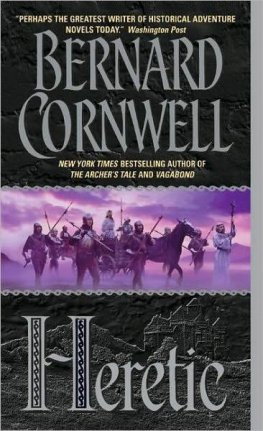
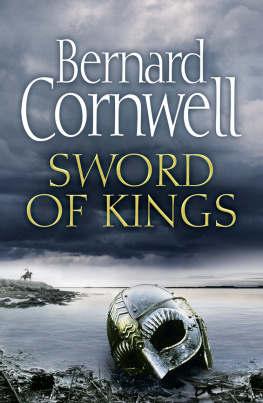

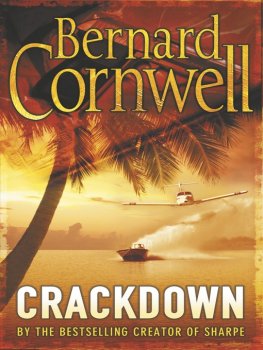
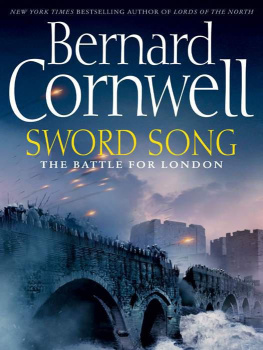
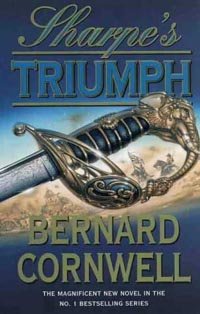
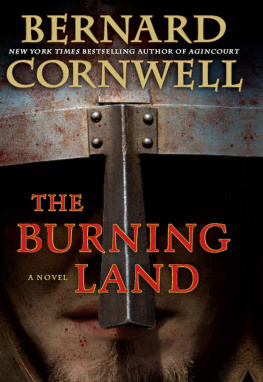
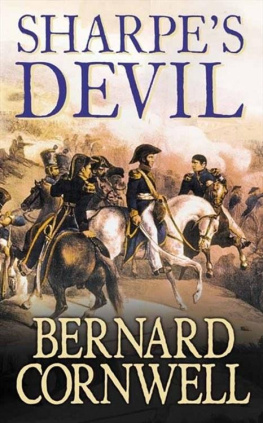
![Bernard Cornwell - The Grail Quest - The Archer’s Tale / Vagabond / Heretic [ATBC]](/uploads/posts/book/131313/thumbs/bernard-cornwell-the-grail-quest-the-archer-s.jpg)
